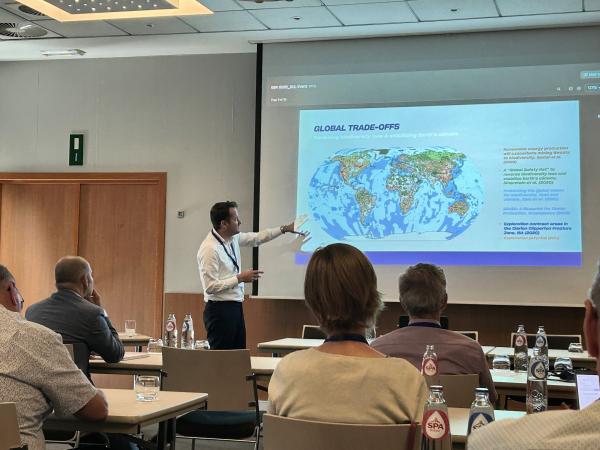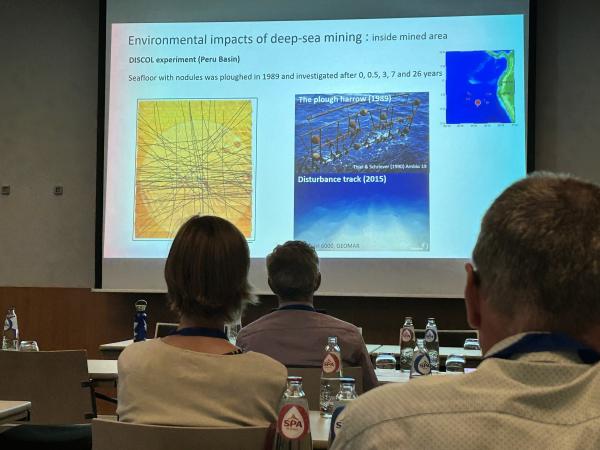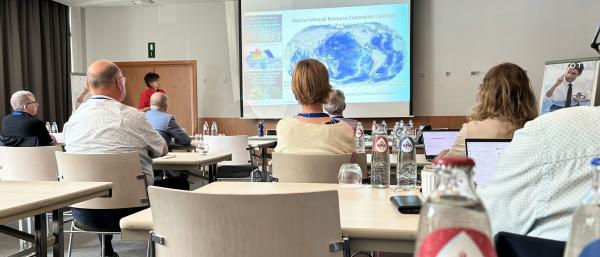The forum opened with keynote presentations from three leading voices:
- Prof. Ann Vanreusel, Ghent University emphasized the ecological risks of deep-sea mining and the importance of balancing extraction with preservation.
- Dr. Kris Van Nijen, DEME Group / Global Sea Mineral Resources advocated for sustainable, innovative solutions to meet the growing demand for critical metals.
- Dr. Michael Baltes, Umicore shared insights on advancements in deep-sea nodule processing, highlighting the role of circularity in technological development.
These presentations set the stage for a dynamic panel discussion joined by Prof. Filip Volckaert, KU Leuven and moderated by Dr. Peter Tom Jones, SIM2 KU Leuven.
Three core themes were tackled:
1. Environmental Impacts
- Disruption of fragile ecosystems and threats to marine life.
- Climate implications from disturbing carbon-storing sediments.
- Ethical trade-offs between ecological preservation and critical mineral demand.
2. Geopolitical Perspectives
- Diverging regional policies and the role of the International Seabed Authority.
- Industry’s cautious stance and ethical dilemmas in sourcing practices.
- The challenge of aligning economic ambitions with sustainability.
3. Flemish Research & Strategic Opportunities
- The need for government investment in research infrastructure.
- The role of Flanders and MateriNex in fostering responsible exploration.
- Strategic questions around funding, logistics, and global leadership.
The forum underscored the intricate interplay between ecology, technology, policy, and economics. As deep-sea mining edges closer to reality, the emphasis remains on responsible research, international cooperation, and sustainable innovation.
If you are part of a Flemish university, research organization, or company in this field and want to join the discussion, contact us at info [at] materinex.be



